China-Africa Think Tank High-Level Dialogue held in Beijing
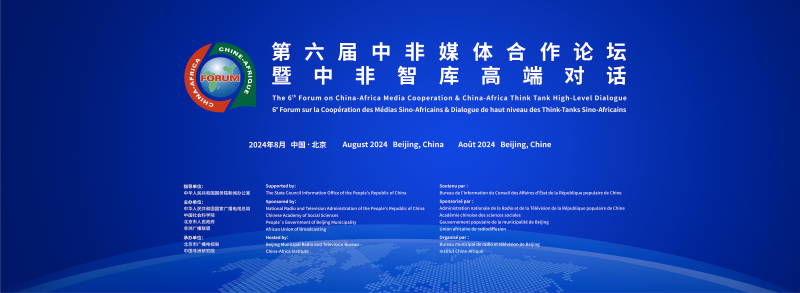
The China-Africa Think Tank High-Level Dialogue, organized by China-Africa Institute (CAI) was successfully held in Beijing on August 21, 2024. As part of the 6th Forum on China-Africa Media Cooperation & China-Africa Think Tank High-Level Dialogue, the event features two parallel sessions: Session 1 "Win-Win Cooperation: Shaping New Prospects for Dovetailing China's Belt and Road Initiative with the African Union's Agenda 2063" and Session 3 "Co-Prosperity of Civilizations: Heading for a New Level of Exchanges and Mutual Learning Between Chinese and African Civilizations.”
The dialogue draw experts and scholars from think tanks of African countries including Egypt, South Africa and Kenya, as well as experts from Chinese Academy of Social Sciences (CASS), China Foreign Languages Publishing Administration, Peking University, Tsinghua University and other institutes. The Chinese and African scholars engaged in heated discussions about jointly realizing modernization and promoting exchanges and mutual learning between Chinese and African civilizations.
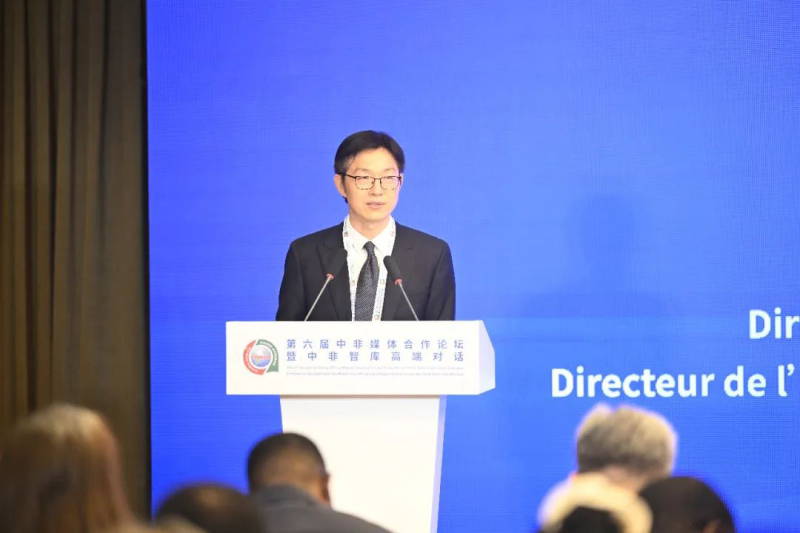
Zhang Yongsheng is presiding over parallel session 1
The parallel session 1 was chaired by Zhang Yongsheng, Director-General of the Research Institute for Eco-civilization of CASS, with six Chinese experts and five African experts speaking. Feng Zhongping, Director- General of Institute of European Studies of CASS, and Professor Jairos Kangira from the University of Namibia, made comments.

Parallel session 1 speakers
Professor Tang Xiaoyang from the Department of International Relations of Tsinghua University explained the practices and challenges of knowledge sharing between China and Africa. He suggested that the exchange of knowledge between China and Africa should be promoted in three areas: technology, administration and policy, and knowledge should be produced and updated through practice. Munetsi Madakufamba, Executive Director of the Southern African Research and Documentation Centre, offered in-depth insights into education and technology transfer in Africa. He noted that in order to bring long-term benefits to Africa, China-Africa cooperation should focus more on capacity building of local institutions and less reliance on institutions from outside the region. Such capacity can be in terms of skills development and talent retention at the state level, private sector or at the support level including research and development, knowledge and data generation and other services. Lu Ruquan, President of CNPC Economics & Technology Research Institute (ETRI, China National Petroleum Corporation), and Deputy Director-General of CNPC Research Center of China Top Think Tanks, introduced CNPC’s major projects in Africa. He stressed the importance of China-Africa cooperation in renewable energy, with focus on the role of photovoltaic and wind power projects in achieving energy self-sufficiency in Africa. Abdeta D. Beyene, Executive Director of the Center for Dialogue, Research, and Cooperation in Ethiopia, focused his speech on creating synergy between the BRI and the AU's Agenda 2063. He called for closer China-Africa partnership through further cooperation and coordination to jointly address the challenges of globalization.
Zhang Li, President of the China Center for Information Industry Development, said that China's successful experience in industrialization could be integrated with Africa's development needs to fill industrial gaps and upgrade local industries. He underlined the vital role of "Green Silk Road" and "Digital Silk Road" in promoting new industrial development in Africa, suggesting improvements in industrial development quality through energy and digital transformation. Associate Professor Rana Muhammad, Head of the Department of Political Science at Suez Canal University in Egypt, pointed out that with the rapid changes in global political landscape, China-Africa relations shifted beyond 'zero-sum games' towards a win-win cooperation model. She emphasized the need to overcome the challenges in terrorism, digital gap, knowledge gap, and the negative impact of western media. Li Xiangyang, Director of the National Institute of International Strategy, CASS, noted that the economic corridors are closely related to the high-quality development of the BRI. China has provided crucial market support for BRI countries and boosted China-Africa cooperation. He believes that in the future China-Africa cooperation will gradually shift from government-led to market-driven and enterprise-led, with economic corridors offering sustainable development paths for Africa to achieve industrialization. Paul Frimpong, Executive Director and Senior Research Fellow of the Africa-China Centre for Policy & Advisory in Ghana, pointed out that the BRI involves substantial investments in infrastructure projects, such as roads, railways, ports, and airports. In Africa, where infrastructure deficits have historically hindered economic development, BRI projects can significantly improve connectivity and accessibility, facilitating trade and economic growth.
Yu Yunquan, Deputy Director of the China Foreign Languages Publishing Administration and President of the Academy of Contemporary China and World Studies, called for the strengthening of collaborative research, enhancement of knowledge sharing, expansion of cultural and people-to-people exchanges in order to push forward modernization in China and Africa. Alpha Mohamed Jalloh, Director of China Africa Institute at the University of Makeni in Sierra Leone, noted that the success of the BRI and Agenda 2063 depends significantly on financial cooperation and investment. He said, China's investments in African countries span various sectors, including agriculture, mining, manufacturing, and telecommunications. These investments align with Agenda 2063’s focus on industrialization and economic diversification. For example, China’s investment in Ethiopia’s Hawassa Industrial Park supports the country’s textile industry, creating jobs and enhancing export capacity. Prof. Wang Lincong, Vice President of the CAI, pointed out that through the dovetailing of the BRI and Agenda 2063, African countries are expected to overcome long-standing development challenges and achieve economic and social advancement. He emphasized that China-Africa cooperation should also expand to new industries such as digital economy, ecological protection, renewable energy and climate change so as to nurture new economic growth points in Africa.
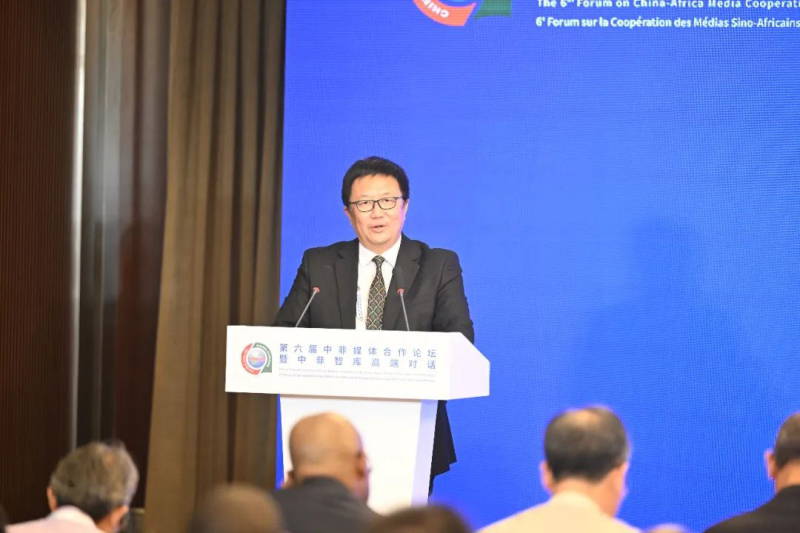
Prof. Ye Hailin is presiding over parallel session 3
Parallel Session 3 was chaired by Professor Ye Hailin, President of CAI, with four Chinese scholars and six African scholars speaking. The comments were made by Sun Zhuangzhi, Director of the Institute of Russian, Eastern European and Central Asian Studies of CASS, and Omayma Ghanem, Professor of the Chinese language at Ain Shams University in Egypt and former Counselor of Cultural, Educational and Scientific Affairs of the Egyptian Embassy to China.
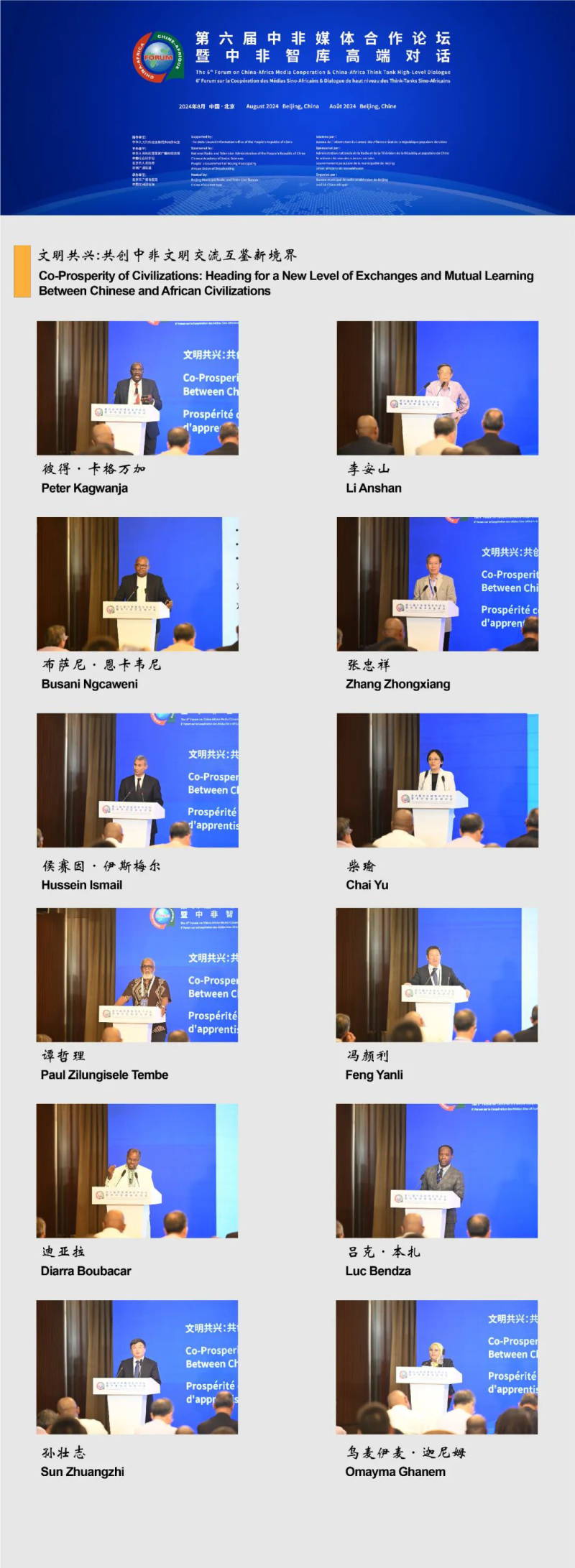
Parallel session 3 speakers
Peter Kagwanja, President and Chief Executive of the Africa Policy Institute in Kenya, said that China's support for Africa under the framework of BRI reflects the concept of a community of shared future for mankind. He pointed out that China and Africa should stay alert to the smear against China-Africa cooperation in the context of geopolitical competition and international public opinions. Professor Li Anshan from Peking University noted that China and Africa should jointly promote the reform of the global governance system to create a better future for human society. He emphasized that the key to China-Africa cooperation lies in advancing reforms within the frameworks of United Nations and the G20 to better address global issues. Busani Ngcaweni, Principal of the National School of Government of South Africa, called for accelerating the synergy of the BRI and the AU Agenda 2063. He said, Africa particularly needs re-skilling, including re-skilling political and leadership, building institutions, reskilling the bureaucracy, the youth and the media. Professor Zhang Zhongxiang from Shanghai Normal University briefed on the achievements of Chinese scholars on African history, noting that Chinese scholars should continue to deepen their research on African history while African scholars should strengthen research on Chinese history so that the two sides can jointly promote exchanges and mutual learning between Chinese and African civilizations.
Hussein Ismail, Deputy Editor-in-chief of the Arabic edition of China Today Magazine in Egypt, said that as a completely new form of human civilization, Chinese modernization breaks the myth of "modernization = Westernization", and provides important reference for China and Africa to go together on the path towards modernization and achieve co-prosperity. Chai Yu, Director-General of the Institute of Latin American Studies at CASS, underlined the achievements of mutual learning between Chinese and Latin American civilizations. She said that despite of significant cultural differences, common progress can be achieved through exchanges and mutual learning among different civilizations. Paul Zilungisele Tembe, the founder and Director of SELE Encounters in South Africa, stated that China-Africa cooperation is facing a series of challenges, such as concretely and vividly presenting the images of African countries to avoid African fragmentation and hegemony, and breaking the bottleneck of China and Africa storytelling. He added, multiple cooperation platforms, such as the FOCAC can help boost win-win results in China-Africa cooperation. Feng Yanli from the Institute of Philosophy, CASS, stressed the importance of strengthening African philosophy research, as it can help find common values and consensus among different civilizations, therefore eliminate cultural differences and conflicts, and promote win-win cooperation between China and Africa.
Boubacar Diarra, Vice Chairman of the Federation of China-Africa Friendship Associations (FCAFA), and traditional Chinese medicine (TCM) practitioner from Mali, said that enough emphasis has been put on the importance and necessity of exchanges and mutual learning between Chinese and African civilizations, however, the influence and recognition of China-Africa cooperation also need to be underlined. China and Africa should strengthen the role of think tanks and media publicity, to fully demonstrate the commonalities and different values of China and African cultures, and establish multilateral exchange mechanisms to facilitate China-Africa cooperation. Luc Bendza, Chief Representative of the African Film Association (AFA) in China, said that China and Africa media play an important role in promoting cultural exchanges and integration between the two sides. Through media reporting and film productions, the people of China and Africa have a deeper understanding of each other's cultural traditions and values, which helps to avoid misunderstandings and contribute to closer China-Africa friendship.
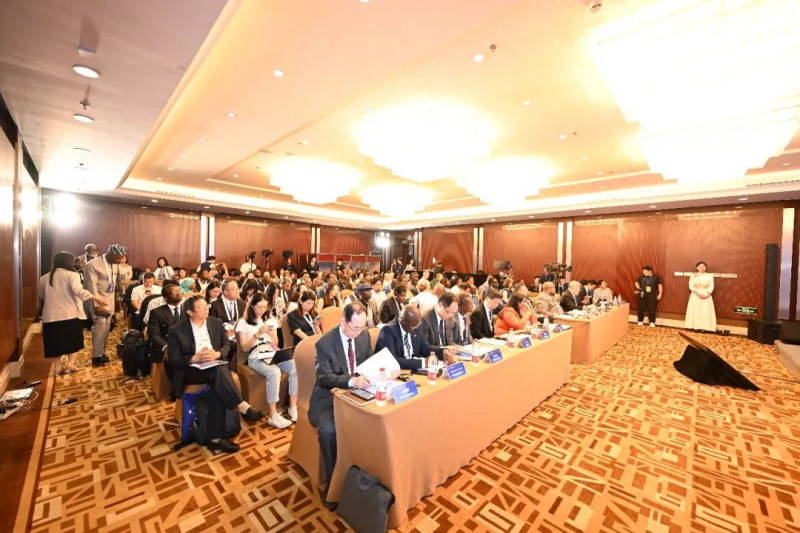
Participants at China-Africa Think Tank High-Level Dialogue
In the concluding speech, Prof. Ye Hailin said that Chinese and African experts and scholars have reached broad consensus through in-depth discussions at the forum, and they have contributed valuable ideas and suggestions for jointly realizing modernization and enhancing comprehensive strategic cooperation between China and Africa. In the future, we should encourage more research fellows and journalists to conduct field studies in China and Africa. The CAI will continue to offer support for Chinese and African scholars in academic exchanges, and to bring more fruitful outcomes of China-Africa cooperation and contribute to the exchanges and mutual learning between Chinese and African civilizations.


